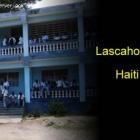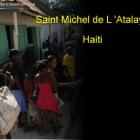ADVERTISEMENT
Agriculture - Haiti Observer Blog
Agriculture, Haiti Observer Blog. Read the following articles about Agriculture
Haitians eligible to participate in U.S. H-2A and H-2B Visa program
Effective January 18, 2014, people from Haiti and also from 62 other countries are eligible to participate in the H-2A and H-2B Visa programs of the United States.
What is it exactly and who can apply for it?
H-2A and H-2B Visa programs allow U.S. foreign nationals to come and work in the United States on a temporary basis. For an agricultural position, they need an H-2A visa and for non-agricultural, they need an H-2B Visa.
Here is a complete list of the countries eligible for the U.S. H-2A and H-2B Visa program.
Kore Peyizan program in St-Raphael
In continuing efforts to address the food crisis problem in Haiti, a distribution bank, operated by the Kore Peyizan program, handed out over 1,000 agricultural packages to St.-Rafaël growers for the winter planting season. On hand for the distribution was Minister and Agronomist, Mimose Marie Felix, a delegate for the Department of Promotion Peasantry.
Felix let the growers know the government of Haiti (GOH) is serious about raising the farmers' standard of living. To achieve this, agricultural production must increase substantially, not only for the farmers' own livelihoods, but to combat food insufficiency on the island. The farmers are grateful to the GOH for the support they receive through social assistance program, Ede Pèp. The agricultural packages received comprise bean seed, pesticide, and pesticide sprayers.
Forecast for 2013-2014 Crop Yield Looks Good in Haiti
The National Coordination of Food Security (CNSA) has projected, based on figures generated up to the present, the 2013-2014 agricultural year is expected to be a good year in Haitian Agriculture. So far the cereal crop has increased as much as 33% over the 2012-2013 season, with some estimates placing the increase as high as 45%. However the yields fall 11% below the 2009-2010 season. Generally, for fiscal year 2012-2013 the crop yields were good, except for October because of Hurricane Sandy.
Spring-summer harvests are the largest of the year, when 75% of growers produce crop yields of corn, beans, peas, bananas, and tubers. The yields were especially good for 2013-2014. This was due to the urgings of the Ede Pèp Program.
Agricultural equipment distributed in Cornillon / Grand-Bois
On a recent visit to Cornillon, a town in the west department district of Croix-des-Bouquets, the Haitian head of state, President Michel Martelly made gifts to the long-standing town. On the occasion of their 125th anniversary, the residents of Cornillon were treated to a distribution of agricultural equipment from their president, one of whose mandates is the advancement of the Haitian agricultural sector.
The tools were given to local farmers who make their living farming cash crops such as coffee and fruit. As such, his stated intent was to assist them in making more bountiful harvests. However, as it stands, even with these new tools, farmers in the community of Cornillon still find it hard to eke out subsistence because of other, chronic problems plaguing the area.
Overpopulation in Haiti Holds Country Back from Recovery
Overpopulation on the globe has become a serious concern to governments. All sectors of society are affected: jobs, education, healthcare, and agriculture. In emerging nations, the phenomenon is more intensified. Weak economies cannot create sufficient employment opportunities to lift people out of poverty. Nowhere is this truer than in Haiti. On the index of failed states, the small island has difficulty gaining traction to provide employment, housing, education, and healthcare to 70% of its 10 million population.
The poor in Haiti have become so desperate they often take to the streets, setting cars on fire and erecting barricades to obstruct the flow of commerce to voice their indignation at what they are forced to endure. Much of the violence occurring in places like Port-au-Prince come from gang activity. The Haitian National Police try to manage it but between inadequate manpower and the underground nature of gang activity it is like treading water.
Increase in Sale at Fair Trade Cafe to Benefit Haitian Farmers
Fair Trade Café is located at 4882 Palm Coast Parkway North West, Florida. They serve coffees that are harvested by hardworking men and women in Haiti. Your purchase at 'Fair Trade Café' will help people in an impoverished country to earn a living. Haitian coffee is a wonderful product that simply needs a proper market where it can be sold. Fair Trade Café works jointly with 'Singing Rooster', which is a certified 501 (c) (3 ) nonprofit enterprise that offers on-ground assistance and partnership to the coffee harvesters and makes direct buyer relationships. They also assist in cultivating high quality gourmet Haitian coffee, buy, sell and export bulk quantities of Haitian coffee beans.
Haiti Continues to Receiving Food Aid & Not Agricultural Support
Haiti has been depending on food aid for over last 50 years. Decades of inexpensive imports has destroyed the local agriculture. Haitian import tariff on food at 3% are among the lowest in the Caribbean. As a result, Haiti is unable to feed himself.
Today Haiti depends on the outside world nearly most of its sustenance. Fifty five percent of the food eaten in the country is imported, mostly from U.S and the Dominican Republic; this includes 80% of all the rice consumed within the country. However, recently some of the international aid agencies have raised a cry of alarm. Haiti is facing severe food shortage. Almost two-thirds of the population (around 7 million people) is hungry.
Haiti gross domestic product went up to 4 percent in 2013
Should Michel Martelly say: Yap Rablabal, map travail? If you look at the latest data coming from the International Monetary Fund, you would say that he is right.
based on the latest information from the International Monetary Fund, Haiti's gross domestic product grew in the 2013 fiscal year by almost 4 percent. This is preliminary information that will be verified after the entire year is over. This is better than expected as the International Monetary Fund projected the growth at 3.4 percent as late as last June of this year.
Si se konsa, anbin bagay yo pa pi mal!
Agriculture Minister Thomas Jacques Promotes Banana Production
At this year's World Food Day in Haiti the theme was "Sustainable food systems at the service of food security and nutrition". Minister of Agriculture, Thomas Jacques, spoke on banana production, which has declined noticeably within the last two decades. The Inter-American Institute for Cooperation on Agriculture issued a report, citing banana production was under 450,000 metric tons by 2009. In 1999 banana production was 600,000 metric tons.
Bananas are one of the largest-volume exports Haiti has had in the past, and Jacques hopes for resurgence in banana production and consumption in the future. With funds available to up banana production, employment opportunities would increase and food insufficiency decrease.
Haitian Government Signs Deal for First Agricultural Free Zone
A memorandum of understanding was signed by government of Haiti (GOH) officials and a business investor, in anticipation of an Agricultural Free Zone (AFZ), Haiti's first. The AFZ will be developed in the town of Nourribo.
Signatories Trade and Industry Minister, Wilson Laleau; Directorate of Free Zones Director General, Rode Préval; and Agitrans CEO, Jovenel Moïse, say the project will produce 13,000 employment opportunities over a five-year span. Minister Laleau emphasized the Martelly-Lamothe government wants to support and foster ". . . rapid investment in all sectors". They also welcome more private investment in "structural projects in agriculture . . ."
Haiti, known as the poorest country in the western hemisphere, is a victim of food insufficiency. Causes are soil erosion and barrenness, mountainous terrain, and torrential rains. Of Haiti's ten million population, just over half consume an adequate diet. The rest suffer from malnutrition. One-third of crop yields rot because of inadequate processing methods, absence of storage houses, and transportation infrastructure.
Our objective is to share with you news and information about Haiti and the people of Haiti. Traditions, habits and the way we were or grew are alive in this site. We highly recommend that you Subscribe to our Newsletter and also share with us some of the things that are memorable and made us unique people.

 Lascahobas, Haiti
Lascahobas, Haiti  Marmelade, Haiti
Marmelade, Haiti  Verrettes, Haiti
Verrettes, Haiti  Haitian Creole Translation
Haitian Creole Translation  Saint Michel de L 'Atalaye
Saint Michel de L 'Atalaye